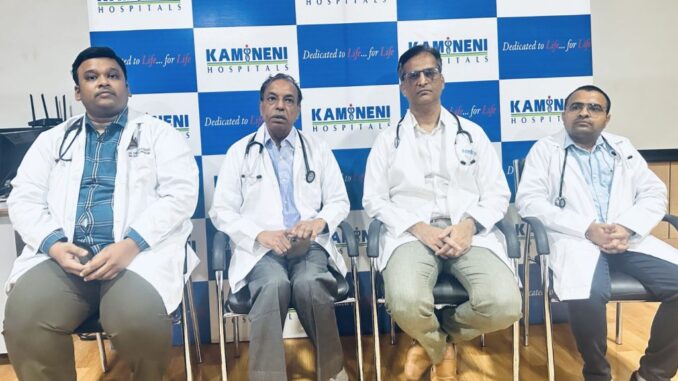
• Protection against new infections and diseases
• Growing awareness among youth
• Useful for all age groups
• Advice from Kamineni Hospitals' doctors
Dr. Swami stated, “Vaccination is crucial not just for children, but also for adults. Since the COVID-19 pandemic, awareness about the importance of vaccines among adults has increased. Some individuals blame vaccines for health issues, but generally, vaccines do not cause problems. Sometimes, pre-existing health conditions may become evident after vaccination, but it is a misconception to attribute new problems to the vaccine. In today’s world, emerging infections and lifestyle diseases are weakening immunity, making timely vaccination critical for long-term protection.”
Dr. Harikishan added, “Universities abroad often require students to have certain vaccinations before enrollment. Students approaching us for advice are guided based on their previous vaccination history. Essential vaccines for those traveling abroad include Japanese Encephalitis and Meningococcal vaccines. Hepatitis vaccination history is also checked, and if uncertain, re-vaccination is recommended. Immunity is essential not just for students but for all age groups, and vaccinations help prevent infections when natural immunity is compromised.”
Dr. Srikrishna Raghavendra explained, “Many assume that vaccinations aren't necessary after 15 years of age. However, people with diabetes, hypertension, heart disease, and autoimmune disorders often have reduced immunity, making them vulnerable to new infections. Vaccines like Pneumonia and Influenza should ideally be taken every year, as new variants emerge annually. In cases like abdominal trauma where the spleen is removed — the spleen being a major contributor to immune function — vaccinations become even more critical. Between 16 and 60 years of age, individuals generally require around 7–8 types of vaccines. After 60, about 3–4 vaccines, including Influenza, Pneumococcal, and Herpes Zoster, are necessary. Herpes Zoster, particularly, can cause severe nerve pain in older adults, against which early vaccination is advised.”
Dr. Pradeep Kumar Patel elaborated, “In women of reproductive age, vaccinations are also crucial. Pregnant women should receive Tetanus, MMR, and DPT vaccines after the third month of pregnancy. Additionally, at least one dose of the HPV vaccine should be taken before the age of 27 to prevent cervical cancer, with two or three doses depending on the individual’s condition. After the reproductive age, women should continue with standard adult vaccinations, similar to men.” The experts concluded that increased public awareness about adult vaccination can significantly reduce the burden of preventable diseases and improve overall health outcomes.
